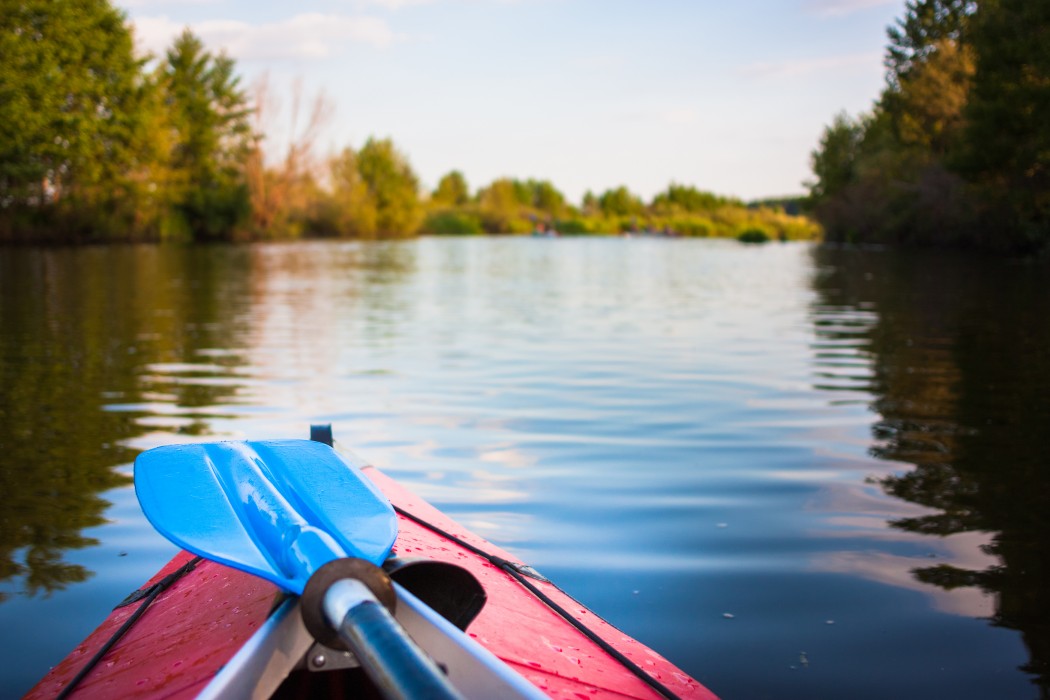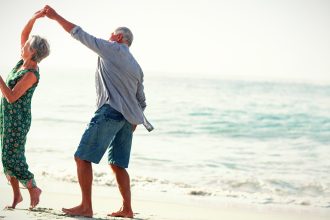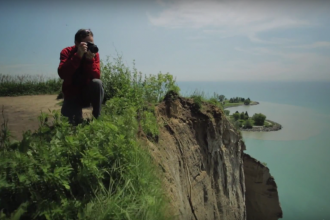For many, relaxing looks something like pulling up a towel or comfortable chair next to the ocean, or perhaps even a lake. But if you think people’s attraction to water is a coincidence, think again. Science has proven time and time again that people are happier and healthier when they’re closer to the water, whether that’s the ocean, a river, or even a bathtub. That’s also the message marine biologist and author Wallace J. Nichols is trying to spread. In his book, Blue Mind: The Surprising Science That Shows How Being Near, In, On, or Under Water Can Make You Happier, Healthier, More Connected and Better at What You Do, he marries science and anecdotal evidence to explain why water has this effect on us. If you were looking for an excuse to hit the beach, plan a canoe trip, or even take an extended bath this summer, here are just a few of the reasons Nichols recommends more time by the water.
It can help you relax
Physicians were known to prescribe seaside visits to people suffering from mental health issues as early as the 18th and 19th centuries, but spending time by the water might be even more important today. When there’s a constant buzz coming from the streets and even the phones in our pockets, it can add a lot of stress and anxiety to our lives. But as Nichols points out in his book, “when we are on or by the water, there is a high degree of predictability because it is so much the same from moment to moment,” and it’s this “predictability” that allows our brains to relax.
It can help you heal
Looking at water isn’t the only way we can improve our health. Engaging in watersports has a big effect, too. Operation Surf, for example, uses surfing to help at-risk youth, people with terminal illnesses or physical limitations, and even veterans suffering from PTSD to build better brain chemistry. Like other forms of aerobic exercise, watersports can lead to the release of positive chemicals, like endorphins and endocannabinoids, which reduce the brain’s response to stress and anxiety. With a sport like surfing, you’re combining this with the beauty of the ocean, the challenge of an ever-changing environment, and the adrenaline invoked by potential danger. As Nichols notes, it’s a seriously addictive experience, and one that’s even allowed addicts to kick bad habits. Of course the healing nature of watersports isn’t limited to surfing—Heroes on the Water (HOW) takes a similar approach, helping wounded warriors and veterans relax and rehabilitate their minds through kayak fishing.
It can make you more creative
Being more creative can help us in nearly every pursuit, from business to art. But as most people know, it’s not easy to summon on command. Being by the water, however, can help. It’s no coincidence that creative types gravitate to water when they need a mental refresh. Author Hilary Mantel apparently takes showers when she gets bouts of writer’s block, while Oliver Sacks would go for long swims. That’s because a relaxed brain is often a more creative one. Sure your brain might get “soft” if you don’t use it enough, but it can also get stressed out by too much activity and stuck in mental overdrive, which eventually leads to cognitive fatigue. According to Nichols, your brain “needs different kinds of ‘exercise’ to increase its different functions,” and just like your muscles, it “requires ‘rest and recovery’ time to consolidate its gains.” When your brain’s visual inputs are simplified, there’s room for new and unusual connections that you just couldn’t make staring at your computer screen with all those tabs open.
It can make you feel more connected to the world (and those in it)
The mindfulness that comes with being near water doesn’t only boost our focus and creativity—by making us more “mindful,” it also allows us to recognize ourselves as a small part of the universe. Not surprisingly, switching to this mindset can increase our feelings of connection and empathy for others. Countless studies have shown that those who spend time in nature feel a bigger connection to something outside themselves, and the same goes for water. It leads to greater feelings of awe, vitality, purpose, and a more positive overall state. In fact, one study Nichols cites in his book found that people who viewed nature scenes, or imagined themselves fully immersed in these environments, were more willing to give to others.
It can make you happier
With the other points in mind, it should come as no surprise that water can make you happier. The state of “happiness” might be hard to define, but there are certain neurochemicals that researchers associate with it, and studies continue to provide evidence that there’s a link between our happiness and the natural world. What’s interesting, though, is that being near bodies of water can heighten these positive feelings. Researchers have found that although “green” environments can have a positive effect on self-esteem and mood, those with open water actually produce significantly larger improvements in mental well-being. Nichols cites a number of studies to support this, including one based in Ireland, which found that people living within five kilometres of the coast were more satisfied with their lives, even when other factors were controlled.
Also on RNR:

























